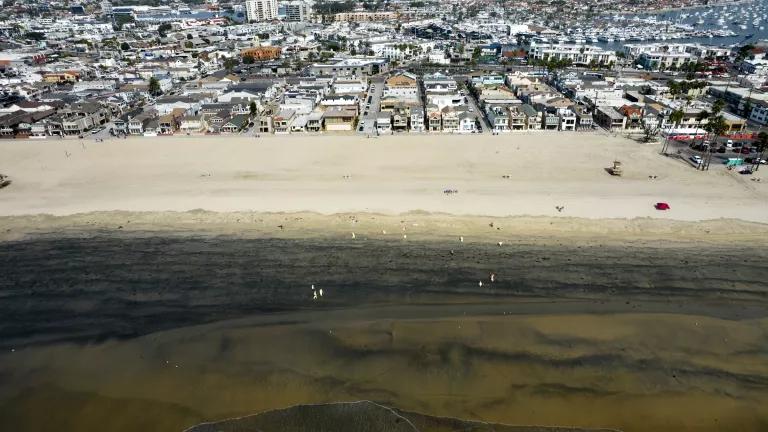For years now, Pennsylvania’s state budget has served as a chopping block for environmental protection, with legislators cutting funding to the state DEP by almost 40% over the last fifteen years.
A $33 billion state spending bill that became law in July has temporarily stabilized the DEP’s resources. But because the General Assembly hasn’t figured out how to raise that $33 billion, and some members think they have to make environmental concessions to the natural gas industry to get any revenue through a severance tax, the knives of legislators are still out. With the DEP’s budget cut to the bone, the General Assembly is going after the agency’s marrow: its ability to issue environmental permits that will protect human health and the environment.
This attack is playing out in House Bill 542, a Tax Code amendment passed by the State Senate on July 27. Anti-environmental riders in HB 542 would:
- Allow applicants for DEP permits to have their applications reviewed by "third-party professionals" of applicants’ choosing, instead of by DEP staff;
- Force-approve permit applications for activities related to shale gas development when the DEP doesn’t process the applications fast enough; and
- Strip the DEP of authority to make independent decisions about two permits for shale-gas air pollution, giving final over approval those permits to state legislators.
All three provisions – as well as anti-environmental riders in another budget bill – are discussed in a letter that NRDC and 18 other organizations recently sent to the General Assembly. This two-part blog will examine more closely the third-party-review and forced-approval provisions of HB 542 (which the bill labels “Environmental Permitting Reform”). Part I provides background on the DEP’s budget woes and its current policy for reviewing permit applications; Part II discusses the rash and probably illegal measures that HB 542 proposes to remedy “permit decision delay.”
“Permit Decision Delay”
Due to budget cuts, the DEP has had to cut more than 700 staff positions in the last decade. Not surprisingly, this has made it considerably harder for the DEP to discharge its legal duties – from inspecting drinking water systems to reviewing permit applications – as fast as regulated industries would like.
In a rational world, the General Assembly appropriate more money to the DEP, enabling the agency to hire more staff. This would require measures that legislators are averse to, though – like raising taxes on the wealthiest Pennsylvanians or abstaining from increases to their own salaries. So the practice in Harrisburg is to decide that “permit decision delay” (a defined term in HB 542) is due entirely to bureaucratic inefficiency and mismanagement. Then ways are devised to make the DEP more efficient or accountable, and the DEP’s resource needs are ignored, along with another major factor in permit delays: the deficiencies and errors that riddle many permit applications. Imagine fielding a football team of six players and then, after a series of defeats by eleven-man teams, deciding to fix the problem by imposing a player curfew and hiring a strength coach. This is the mindset that Harrisburg brings to environmental permitting problems.
The DEP has coped with the combination of fewer resources and more work by raising the fees it charges for many permit applications. This helps when many applications are coming in, hurts when few are, and raises applicants’ expectations of the DEP. Paying more in fees, applicants expect to get their permits and get them quickly.
Executive Order 2012-11 and the Permit Decision Guarantee
Five years ago, complaints about “permit decision delay” prompted Governor Corbett to issue Executive Order 2012-11. It required the DEP to create a “permit decision guarantee” policy based on the understanding if applications contained “all information needed by the [DEP] to make a decision” and met “all applicable environmental statutory and regulatory requirements,” the DEP would adhere to “a predictable processing time for each permit application.” The Order is codified at 4 Pa. Code 7a.91 – 7a.99, which is cited in HB 542.
The DEP adopted a “Permit Decision Guarantee” policy in 2012. It establishes review timeframes for most commonly sought DEP permits, and pledges the DEP to process applications within those timeframes as long as they are complete, technically adequate, and legally sound when submitted. The policy also establishes a hierarchy of review priority, encourages pre-application conferences between the DEP and regulated industries, and creates an “elevated review process” for applications with difficult technical deficiencies.
Funding or “Consequences”?
The premise of the permitting “reform” provisions in HB 542 is that the Permit Decision Guarantee policy isn’t working, and that the best way to bring more “certainty” to permitting decisions is to establish statutory deadlines for DEP action, along with “consequences” if the DEP misses the deadline. Third-party-review and forced-approval are such “consequences.”
You’d think, given all the Corbett administration’s recent work on the Permit Decision Guarantee, that the General Assembly would want to understand how the policy has worked (or hasn’t) before passing major new permitting “reforms.” And perhaps also to understand the DEP’s other current initiatives for improving permitting. So far, though, the legislature appears to have little interest in doing that. Instead, the Senate has given us the curfew-and-strength-coach fixes of third-party review and forced-permit-approval. Part II of this blog will examine these careless and misguided proposals more closely.



